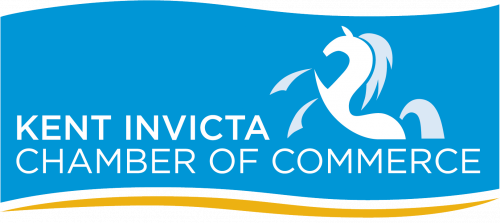Unlocking Potential: The Mutual Benefits of Mentorship
Mentorship, it’s a dynamic relationship grounded in mutual growth and learning, that plays a pivotal role in personal and professional development. Whether you find yourself in the role of a Mentor, guiding a Mentee through the labyrinth of career choices or seeking guidance as a Mentee, both roles offer unique perspectives and opportunities for growth.
In this blog, we will explore the essence of being a Mentor and a Mentee, the criteria for these roles, essential skills for effective mentoring and the tangible benefits derived from these relationships.
There’s often a misconception that the need for a Mentor is something associated with lower-level leadership. This couldn’t be further from the truth, in fact some of my most valuable Mentor relationships have come in my Senior Leadership roles. While mentorship programs often spotlight more junior employees or those in the early stages of their careers, mentorship is applicable at all organisational levels, including upper management and executive tiers. We all have opportunities to improve, learn and grow, whatever your job title or role, that doesn’t change. Nobody is the complete package, despite perception.
In reality, mentoring relationships at higher echelons can be equally if not more impactful. This is particularly true as individuals grapple with intricate leadership challenges, strategic decision-making and the intricacies of organisational dynamics. Senior Leaders can gain significant value from the guidance of seasoned Mentors who have adeptly navigated analogous situations, providing valuable insights. There’s no greater lesson than that of experience.
Mentorship isn’t restricted by organisational hierarchy either, instead it’s a dynamic process fostering professional development, continual learning and knowledge sharing across different levels. Establishing mentorship relationships across various management tiers creates a more healthy, inclusive and supportive organisational culture, promoting the exchange of expertise and enhancing overall leadership capabilities. When applying for roles in the past, an established mentoring program is something that I have consciously looked for in the organisation’s DNA. Recognising and having one tells a lot about the type of organisation I was applying for, equally telling if there wasn’t one too!
Let’s take a moment to define what the roles of a Mentor and a Mentee actually is:
Mentoring is not merely dispensing advice, and it’s certainly not telling someone what to do. It’s a nuanced practice rooted in sharing experiences and fostering growth. As a Mentor, the responsibility extends beyond offering solutions to encouraging independent thinking and problem-solving. As a Mentor, I feel that it’s my role to inspire, encourage and empower my Mentee to achieve their goals. I make it my responsibility to ensure that my Mentee leaves every meeting with me feeling motivated and empowered to continue their journey. For me, you should only consider becoming a Mentor when you have accumulated sufficient experience, skills and insights in a particular field to add value to someone seeking growth. The mentorship role requires commitment, time investment, patience and the ability to tailor guidance to the individual needs of your Mentee. Equally, the ability to actively listen, inspire and coach are skillsets that are present in any great Mentor. Let’s look into these skills in a little more detail:
Active Listening: A Mentor should possess the ability to listen actively, understanding the mentee’s concerns and providing thoughtful responses.
Empathy: Empathy is the cornerstone of effective mentorship. Understanding the Mentee’s perspective fosters a supportive and constructive relationship.
Guidance, Not Dictation: A successful Mentor guides rather than dictates. Encouraging critical thinking helps mentees develop their own problem-solving skills.
Constructive Feedback: Providing constructive and actionable feedback is crucial for a Mentee’s growth. It should be specific, focused and aimed at improvement.
But what about the role of a Mentee?
Choosing to seek a Mentor is a strategic move in one’s personal or professional journey. The key word here being “choosing”. There is little value for a Mentee or the Mentor in a relationship that is driven out of a directive. Pushing development onto people seldom ends is success, rather it needs to come from a place of “pull”. Seeking a Mentor during transitional phases such as career changes, entering a new industry or facing complex challenges are the most common times I’ve found occurrence. Seeking a Mentor demonstrates a proactive approach to personal development and a willingness to learn from others’ experiences. Knowing yourself, and being in a psychologically safe environment where you feel comfortable to be open and honest about where you see opportunity in yourself is important.
Often a mentorship journey begins with an initial meeting, a pivotal moment for both Mentor and Mentee to establish a foundation of understanding. This encounter is kind of like speed dating, you want to see if there is a professional spark, some common ground you share in a very short period of time. It serves as an opportunity to delve into each other’s professional backgrounds, goals and expectations of each of in the relationship.
It’s crucial to approach this meeting with an open mind, acknowledging that mentorship is a relationship that thrives on mutual respect and compatibility. This initial interaction should feel comfortable and encouraging, allowing both parties to express their needs and aspirations openly.
Importantly, this meeting sets the stage for either party to assess whether the Mentor-Mentee relationship aligns with their expectations and objectives. Recognising that not every pairing is destined for success is essential. It’s perfectly acceptable for either the Mentor or Mentee to conclude that the chemistry or objectives aren’t harmonious. This openness to the possibility of a mismatch ensures that both individuals can actively seek a more fitting mentorship connection elsewhere, maximising the potential benefits for everyone involved. Many times, over the years I’ve cried “I’m not a celebrity, get me out of here” following this initial get together. It’s not personal, it’s just not right for me for one reason or another.
Statistically, mentorship has shown positive impacts on both Mentors and Mentees. According to a study by the Society for Training and Development, employees who were mentored experienced higher job satisfaction (68%) compared to those who were not (52%).
On the flip side, a study by Deloitte revealed that 80% of CEOs credit mentorship as a significant factor in their career success. This underlines the importance of mentorship for mentees in acquiring guidance that contributes to their professional advancement.
As a mentor, I find immense satisfaction in witnessing my Mentee’s growth and success. There have been many instances that remain etched in my memory where my coaching on navigating workplace challenges have led to a notable improvement in my Mentee’s leadership skills. Witnessing them grow and achieve their goals through application of something that we had worked on together is incredibly powerful. Even now, in some cases years later, I watch them from a far achieve promotions and other milestones that fill me with pride.
Conversely, as a Mentee, seeking guidance during a pivotal career move proved instrumental. My Mentor’s insights not only aided in the decision-making process but also provided valuable perspectives that I might have otherwise overlooked. I liken myself to a ball of clay, that over the years has been moulded by numerous people, like defining a family recipe that over the years has been refined, to create something that is unique, balanced and desirable, yet still with plenty of opportunity for growth and improvement.
In the realm of mentorship, both Mentors and Mentees play indispensable roles in shaping each other’s journeys. It’s a reciprocal relationship founded on trust, guidance and shared experiences. The statistics affirm the positive impact of mentorship, emphasising its role in personal and professional development. Whether you are considering being a Mentor or seeking one, understanding the essence of these roles is crucial for navigating the complexities of the modern professional landscape. Who knows, one day I may knock on your inbox in pursuit of a some mentorship in your given skillset, equally my door is always open to those who feel I can add value to their journey.


